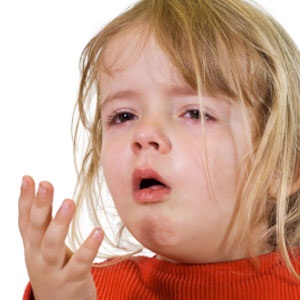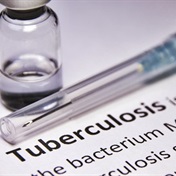
Researchers at the Desmond Tutu TB Centre at Stellenbosch University have embarked on a potentially groundbreaking study that could lead to better ways to treat tuberculosis (TB) in babies.
The study, which measures safe and effective TB drug therapy for babies, forms part of research conducted by neonatology specialist, Adrie Bekker, who has been awarded three scholarships for her work into prevention and treatment of babies with TB.
Read: TB infections hard to diagnose in children
The study is monitoring TB drug therapy in babies less than a year old, who mainly contract TB from their mothers or from an infectious TB household contact and are routinely admitted to Tygerberg Children’s Hospital and the nearby Karl Bremer hospital.
High risk of TB infection
“Immunity is very weak in a small child and even more so in an infant. They can get seriously ill. If the mother is not treated for TB or has only recently started treatment, it poses a high risk to her newborn baby. We also need to find better ways to treat babies with TB,” says Bekker.
Bekker says without proper preventative therapy, up to 50% of babies infected with TB develop TB disease, of which 30% could be severe forms, including TB meningitis.
“A mother with TB or HIV is twice as likely to have a premature and low-birth weight baby and for a tiny baby, the risk of contracting TB and severe forms of TB is much higher because they have less immunity.”
Bekker’s study is looking at ways to prevent TB through a better understanding of the relationship between maternal and infant TB, particularly if the mother is HIV positive.
Babies at risk of TB are given isoniazid (INH) which helps to reduce their chances of contracting the illness, but there are many reasons why the course of medication is not always seen through to the end.
“We’re finding that fewer than 10% of the babies complete the six months of preventative treatment (INH). It’s very difficult to convince mothers to continue with the preventative treatment, partly because the TB medication is so unfriendly. The tablets are big, hard to crush and taste bitter,” says Bekker.
Safer and better TB treatment
Children have traditionally been excluded from TB treatment trials, but researchers are committed to changing this in a bid to develop safer and better TB treatment. Researchers at the DTTC, which falls under the Department of Paediatrics and Child Health at Stellenbosch University, are also examining how the dose needs to be adjusted according to the weight of the babies.
Under the leadership of Anneke Hesseling, Director of the Paediatric TB Research Programme at the DTTC, Bekker’s study will assist in how to develop effective yet child-friendly medications for small babies.
“We need to know if we’re treating babies with TB correctly. The study is important to determine whether new guidelines are appropriate to also treat the youngest and most vulnerable TB patients. This research also paves the way to evaluate new TB drugs and treatment regimens in babies,” says Hesseling.
TB is a top 10 killer of children, yet child friendly formulations for most TB drugs are still lacking. It’s particularly critical for newborns and babies, who are currently treated based on guidelines for larger children, without knowing if the dosing is safe or effective.
Bekker, together with paediatrician, Dr Elisabetta Walters from the DTTC, have been selected for the South African Medical Research Council Clinician Researcher Programme, which aims to encourage doctoral degrees in clinical research in South Africa.
Severely under-estimated problem
Walters is tackling the diagnosis of TB in young children and babies. The diagnosis of TB can be particularly difficult, as babies often don’t present with the usual symptoms such as night sweats and coughing for the classic two weeks or longer. Health care workers often do not think of TB in very young children. The tests can be uncomfortable and doctors are able to confirm a diagnosis in only a minority of children.
“We are looking at how to get better quality samples from different sources to achieve a higher TB confirmation rate in children through the various methods of diagnosis.” says Walters.
Two hundred children are currently enrolled in the study, with plans to enrol 400 more at Tygerberg Children’s Hospital and Karl Bremer hospital.
Read: Half a million kids get TB every year
Walters says the ultimate goal would be for a child to have a correct and more rapid TB diagnosis, as this could be life-saving.
More severe forms of TB
“TB among children is a problem that is severely under-estimated. Children are in great danger of getting more severe forms of TB, such as TB meningitis, which can be fatal or cause debilitating brain damage.
TB can also progress to the abdomen, bones (especially the spine) and kidneys in children far more quickly than adults.”
Apart from the smear, culture and other microbiological tests of sputum samples, Walters is researching the potential of diagnosing TB from stools, which would be less invasive for children.
“It would be a breakthrough and much easier for children and for healthcare workers,” says Walters.
Read more:
New antibiotic could overcome drug-resistant TB
Women left out of TB care
SA leads TB vaccine hunt




 Publications
Publications
 Partners
Partners














